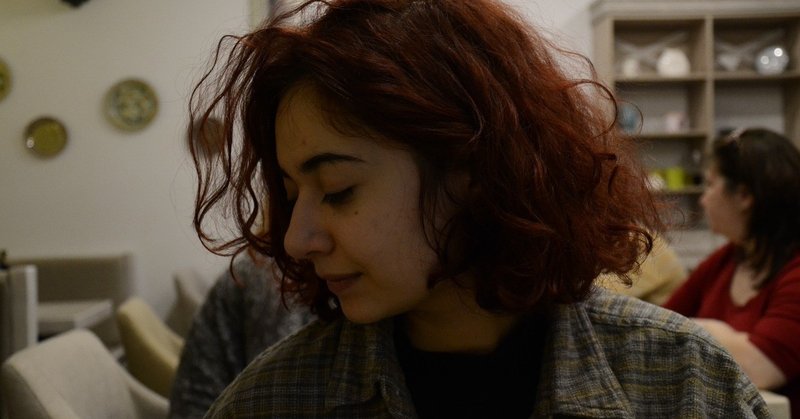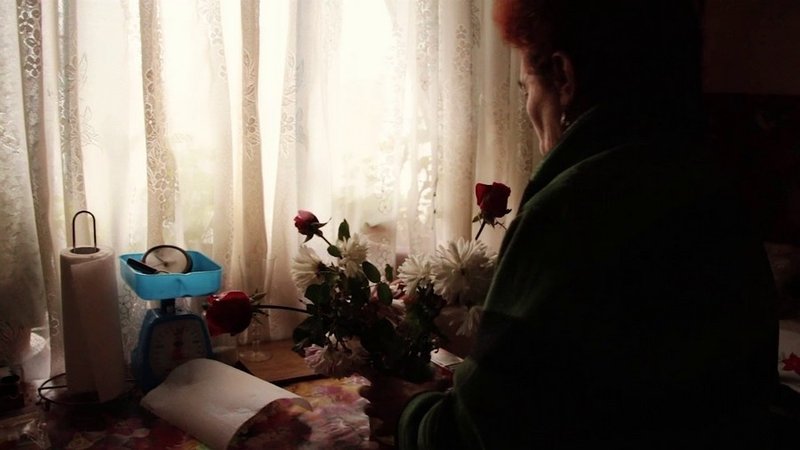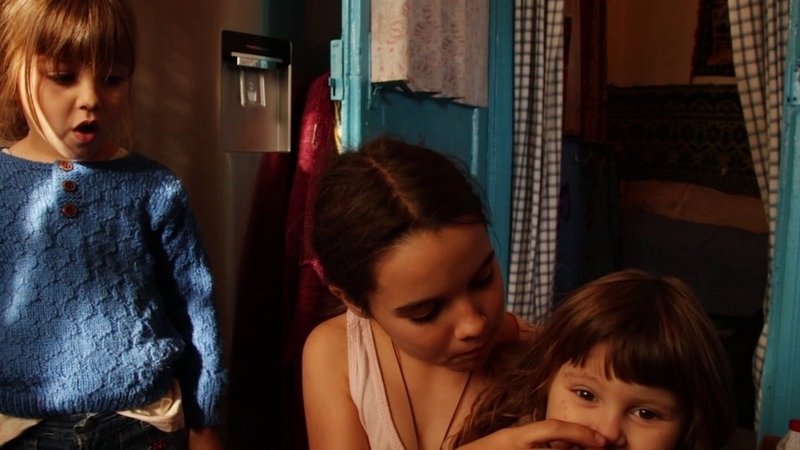
Beauty in the Romanian Dailylife: Interview with Letiția Popa
Based in Bucharest, Romania, Letiția Popa is currently studying film directing at the National University of Theatre and Film I.L Caragiale. She debuted with Marie on the autumn of 2018 and is currently working on her second documentary.
///////////////////////////////////
Tettyo Saito (TS): Why did you want to become a film director? And how did you become?
Letiția Popa (LP): I decided to go to film school when I was 18, so this desire of mine to study and make films happened as a need of mine for self-expression. I was into photography for a while and before that I was painting since I was very little, so I was always a visual person. I was a shy kid and many times I felt afraid to speak up. At the same time, I felt like I wanted to tell my own stories, that for once I wanted to finally use my voice to express the things I wanted to tell. So instead of going to therapy I decided to start making films. So here I was, stating my journey as a director in film school. After that, I discovered the documentary genre, and so my life completely changed, because it turned into something much more than just self-expression. It wasn't only my voice I was giving form, but the voice of the others that couldn't speak, just like me.
TS: When you started to be interested in movie, what movies did you watch? And what kind of movies could you watch in Romania at that time?
LP: I was into movies since I was very little because I would watch together with my father american movies. He was really into thrillers, dramas and action movies (sometimes even horror) and I remember we would eat sunflower seeds and we would watch what was on tv, after he carefully examined the program on every channel, so we would watch the best film from that night.
After that, when I became a teen, I started to watch movies again, but this time I would choose them. I was into the directors you start watching when you firstly become interested in film, like Tarantino, Scorsese, Fellini or Christopher Nolan. Of course, I could only watch these films on my laptop and only if there were new films, I could watch them on cinema. I come from a small town from the East of Romania and there weren't so many cinema places you could watch older films, like there are in bigger cities. And when it comes to Romanian films, it was always so hard to watch them, because those films had hardly any spots left in the programs next to the big blockbusters.
TS: At first, how did you find the family in "Marie"? Why did you chose them as this film's subject?
LP: I knew Iordana before deciding to make a documentary about her. She comes from a distant lineage of my fathers. I knew many things about her, and I thought she would make a good protagonist. So I went to visit her, together with my parents, and I met her and her daughter and nieces and I was fascinated by how much they reminded me of my uncles that I used to go to when I was little and also how rich their universe was and so I felt a lot of attraction to film them. I didn't know what that was back then. It's like when you first fall in love, that you don't know what hits you, and so it's mixture between fear and desire. For me, making a film about them was coming back to my roots, in a way, because my father comes from a peasant, traditional family, very similar to theirs.

TS: Where is the village in this film? Very famous place in Romania, or your birth place?
LP: It's located in the Danube Delta, which is an isolated area filled with water channels. This village in particular, is right in the north of the Delta, at the border with Ukraine. This whole area is UNESCO protected because of the animal species that live there so it's very touristic, but other than that, the whole economy is dead there. They closed all the fish factories and so many people had to migrate from that place, usually leaving for work in other countries. Most of the people that are still there are either the old or the young.
TS: I'm impressed by your thoroughly observational style in this film. This style makes the film more delicate and powerful. In this case, what is the most important thing to communicate with the family?
LP: For me, this film could have only been made like that. It had to be me in relation with them. Many time, the people that would come in through the door would be too focused on their life situation that Iordana had to solve, and so they easily ignored me. Of course, they sensed I didn't mean any harm. In the beginning they would question my presence there, but after that, they accepted me. Iodana was actually very proud that someone is filming her. She was walking with us through the village, telling everyone she's a movie star, so this gave us a lot of confidence to keep filming. And it was because of these very energetic moments that she had, that when she went back home. she allowed us to see the vulnerable as well. As for the kids, especially Maria, we easily communicated. They were very attracted to the equipment, as one usually is when they first see them, so at some point, we actually gave her the boom and I remember her face when she was listening on headphones.
TS: One of the most beautiful things is your way of depicting dailylife in Romanian village. For example, the grandmother cooks some dishes, the children eat grape and Maria walks in the villages. You captures the beauty in dailylife very vividly. How did you capture this beauty in dailylife on the village?
LP: With a lot of patience and good timing! In these moments, when the kids eat grapes and Maria walks in village, we are communicating with each other, so nothing was staged.
TS: This film's impressive person is Maria. She struggle with the family or other children. We see her innocence shine and become wore out. Why did you choose her for the central role of "Marie"?
LP: As you said yourself, she's an impressive person! I've seen myself in her so strongly, I didn't knew how to react. I could see that even though she is in such a small body, and even though you can sense her innocence, she is a very strong person for a ten year-old. She had power to react to all of these external forces fighting with her and I believe she's got a lot of power. And even though she is stuck in this situation, where she is the older sister, caring for 5 other siblings now, I hope she will find the power to get out of that circle she's in.
TS: How is the current situation of Romanian cinema? From outside, it seems very good. Modern maestros like Corneliu Porumboiu and Cristi Puiu make masterpieces and new talents appear at very famous festival like, for example, Marius Olteanu at Rotterdam, Ivana Mladenovic at Rocarno and you at Jihlava. But from inside, how do you see the situation?
LP: This is huge honor that I am in this enumeration you made. I am still very young, still in film school, and still have a lot to learn and I think having the chance to have your film selected in a big festival is being lucky, beside hard work and energy that you put in the projects you make. From my perspective, I think it's a lot of new talents that I am sure you will hear about them in the future (like Andra Tarara, Teona Galgotiu and Victor Bulat) and I can sense there are more and more women that are becoming directors now and I think we are in deep need of feminine perspectives in cinema. I think it's an interesting time for Romanian cinema.
TS: When movie lovers in Japan want to know Romanian cinema history, what Romanian film will you recommend? And why?
LP: This is a film not so many know about, I think. It's called A Film With A Charming Girl, by Lucian Bratu. This is a very sweet film, inspired by the french new wave and the czech new wave. It's a very courageous film for the period that it was made, cinematic language wise and subject wise. It depicts this young woman that wants to become an actress, telephones men from the phone book and meets them at the airport and likes to put on hats and sing. She's delightful to watch and she's also being played my Margareta Paslaru. who is this very well known singer from that period. I like it a lot because you watch this histrionic young woman get herself into a lot of situations and she responds to them with tenderness. It reflects the confusions a young metropolitan women goes through in her transition of becoming a young adult, finding a place for herself and responding to things in a playful way.
TS: Do you have a plan to make new short or debut feature? If so, please tell about it to Japanese reader.
LP: Right now I am still in film school, so I don't think of deputing yet. As I mentioned earlier, I think I still have a lot to learn and so I plan on working on some other short film as I am still a student and see where this gets me. I am now working on this archive family film that belongs to this man that suffers from Alzheimer, so it's a totally different film from Marie.

私の文章を読んでくださり感謝します。もし投げ銭でサポートしてくれたら有り難いです、現在闘病中であるクローン病の治療費に当てます。今回ばかりは切実です。声援とかも喜びます、生きる気力になると思います。これからも生きるの頑張ります。
